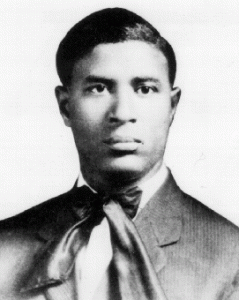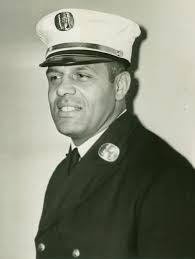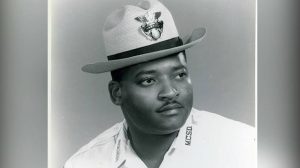Juneteenth: Honoring Freedom, Building Equity in the First Responder Community
By Connect & Protect
“Nobody’s free until everybody’s free.” – Fannie Lou Hamer
On June 19th, 1865—more than two years after the Emancipation Proclamation was signed—enslaved people in Galveston, Texas were finally informed that they were free. This moment, now recognized as Juneteenth, represents a delayed but powerful victory of justice over oppression. It is a story of freedom deferred and dignity reclaimed. But for those of us in the first responder community—fire, EMS, and law enforcement—it is more than a date on the calendar. It is a call to reflection, growth, and action.
Why Juneteenth Matters for First Responders
Juneteenth is a day to honor Black Americans’ ongoing fight for liberty, equality, and inclusion. For first responders, it’s also a time to acknowledge a profession historically shaped by exclusion, yet profoundly enriched by those who broke barriers to serve despite the odds.
Today, we stand on the shoulders of Black pioneers in firefighting, EMS, and law enforcement—many of whom were the first and only in their departments. Their stories aren’t always in textbooks. But they should be in our hearts, in our training rooms, and in our leadership conversations.
Trailblazers We Must Remember
Garrett Morgan – The Inventor Who Saved Lives
In 1916, Garrett Morgan, a Black inventor, risked his life using his newly designed “safety hood” (an early gas mask) to rescue trapped workers from a tunnel explosion under Lake Erie. Despite his heroism, many newspapers failed to give him credit once they learned of his race. Yet his legacy lives on in every breathing apparatus and hazmat suit used today.
Captain Wesley Williams – FDNY’s First Black Fire Officer
In 1919, Wesley Williams became one of the first Black firefighters in New York City. By 1927, he had been promoted to Lieutenant, and later became the first Black Captain in the FDNY. He went on to co-found the Vulcan Society, an organization dedicated to civil rights and equal treatment of Black firefighters—a group still active and needed to this day.
John Moon- The Legacy of Freedom House
John Moon was one of a pioneer group of predominantly African American Emergency Medical Technicians (EMTs) operating one of the nation’s most advanced ambulance services from the late 1960s to mid-1970s, who later became Assistant Chief of Emergency Medical Services for the City of Pittsburgh.
Sheriff Lucius D. Amerson – First Black Sheriff Elected Since Reconstruction
In 1967, Lucius Amerson was elected sheriff in Macon County, Alabama—making him the first Black sheriff in the South since Reconstruction. He held the position for 20 years, demonstrating how law enforcement can reflect and serve the community it protects.
From History to Healing: The Mental Health Connection
For Black first responders today, the weight of history often collides with the pressures of the job. Representation is still lacking. Cultural stigma around mental health persists. And systemic challenges in promotion, leadership, and department culture often remain unspoken.
That’s why peer support programs, cultural competency in behavioral health, and intentional inclusion in leadership are not optional—they are essential. Departments that recognize the unique experiences of Black first responders are better equipped to build resilient teams and cultivate psychological safety for all members.
What Can We Do Today?
Acknowledge the Past
Understand that Juneteenth is not just about emancipation. It’s about delayed justice, and the responsibility to keep advancing equity in our profession.
Educate Our Ranks
Make space for historical learning in training programs. Include real stories of trailblazers who paved the way for diversity in first response.
Support & Celebrate Diversity
Actively support employee resource groups, cultural observances, and mentorship programs that uplift underrepresented voices.
Listen to Black First Responders
Too often, their voices go unheard. Let Juneteenth be a time to pause and truly listen to those carrying generational, cultural, and professional burdens.
Reimagine Leadership
True leadership includes healing. Make mental health culturally responsive, destigmatized, and accessible for everyone—especially for those who’ve always had to prove they belong.
Final Reflection
Juneteenth isn’t just Black history—it’s American history. For those of us who wear uniforms and serve communities, it’s an invitation to recommit to the principles we swore to uphold: freedom, justice, and healing.
At Connect & Protect, we believe honoring this day is a vital part of supporting the whole responder—mind, body, and soul. We salute the Black first responders of the past and present whose strength, service, and sacrifice continue to change the world—one call, one shift, and one legacy at a time.




